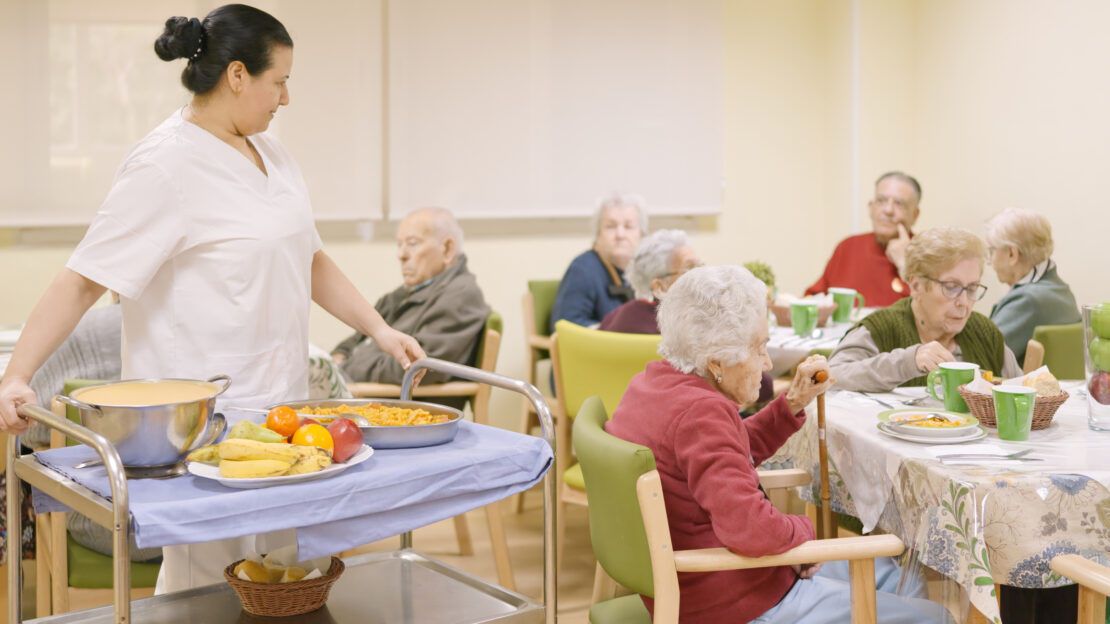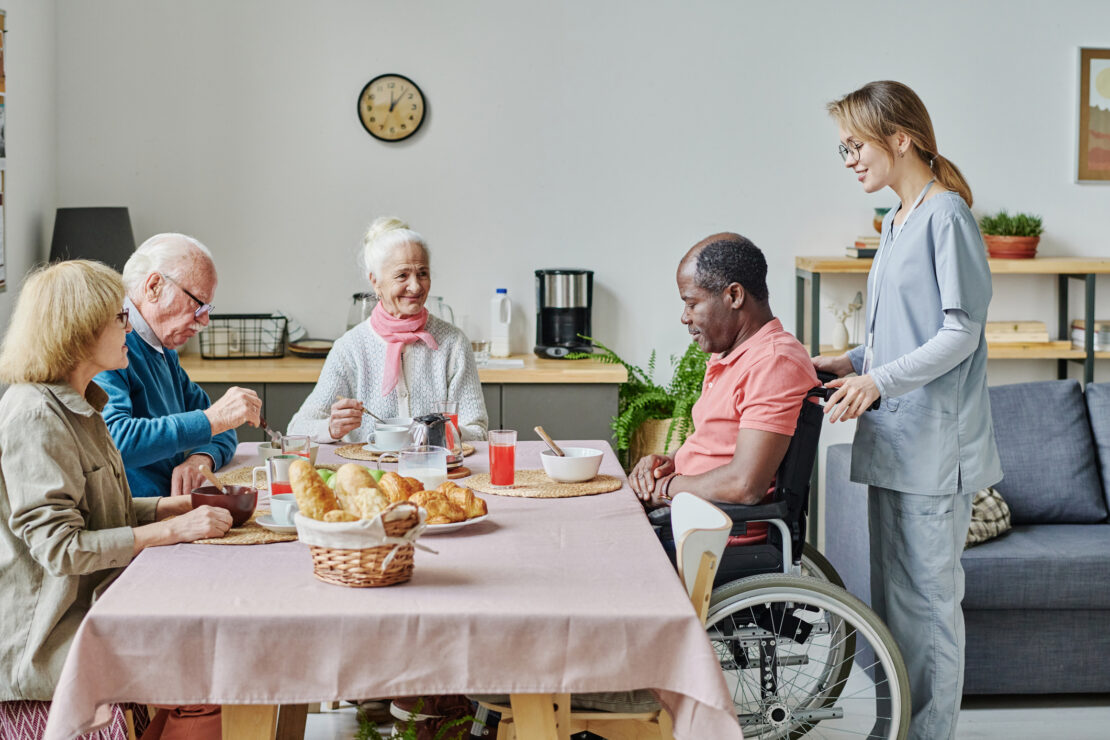One of the most crucial aspects of providing care for elderly patients is making sure they’re receiving proper nutrition, but this can become a more difficult task when they lose their appetite. Whether they’re struggling to eat enough because of illness and medications, or their loss of appetite is a result of situational factors, catering teams in care homes are responsible for encouraging healthy, regular appetites.
Here, we’ll be helping you understand why residents might develop a loss of appetite while they’re in a care home. We’ll also be offering tips on what you can do as caterers to support them and keep their nutrition and hydration levels high.
What can cause a loss of appetite in residents?
Rresidents can lose their appetites for multiple reasons, and determining the cause can be a great first step towards providing effective solutions.
Illness is one of the most common reasons for residents losing their appetite. For example, health conditions like dementia and Alzheimer’s might stop residents from being able to properly communicate their needs and can sometimes cause them to forget that they’re hungry. As a result of certain illnesses and medications, residents can also become dehydrated and develop a dry mouth, which might lead to a reduced appetite.
For some though, it might simply be the case that their tastebuds and preferences have changed with age, and this might lead them to lose interest in foods they might’ve previously enjoyed. While some care home residents can usually communicate their opinions with the relevant staff members, those who also suffer from illnesses like dementia might find it more difficult to explain why they aren’t eating certain foods. This can make it more difficult to pinpoint the underlying causes of appetite loss in residents.

Situational factors might affect the eating habits of some residents. Elderly people can sometimes find it hard to adjust to a different routine and environment, and this change in their social settings can be a common cause of appetite loss. Whether they’re part-time or full-time residents, the new meal time routine can throw them off their usual schedule and leave them feeling out of control. Loneliness and isolation might also cause a drop in appetites for some residents. The good news is that if appetite loss isn’t caused by medications or illness, it can be much easier to find ways to encourage them to eat.
Side effects of appetite loss
If the appetite loss of residents isn’t properly managed, it can lead to other potentially harmful side effects. If anybody, regardless of age, doesn’t eat or drink enough, it can lower energy levels and leave people drowsy or less alert than usual. But in older people especially, it can lead to fragility and weakness in the body. It can also leave them more susceptible to falling or tripping.
How to support residents who have lost their appetite
Catering teams working in care homes must understand how to support residents who have lost their appetites.
Maintain a consistent daily routine
By establishing and maintaining a consistent daily routine for residents, you can help make sure that they’re getting enough food throughout each day. Offer meals at set times and provide nutritious snacks in between, alongside providing plenty of water. Effective planning and consistency can be the key to encouraging better eating habits for residents.
Create smaller meals

If residents are struggling to finish their food, it can be beneficial to look at ways you can manage your menu to suit your residents better. They might find it hard to finish their plate of food for multiple reasons, which might include feeling overwhelmed or unsure about what they’re eating. One recommendation is to simply reduce meal sizes so that residents are faced with less food at any given time, while still receiving meals at regular intervals. Care should be taken to ensure these smaller meals provide plenty of nutrition and are high in calories since this will help build their appetites.
Adapt food to each resident
Different textures of food can be more difficult for some residents to hold or eat, which can lead them to eat less. For those suffering from illnesses or medication side effects that might be reducing their appetite, this can be a good option. Offering softer, more manageable foods like finger foods and soups can be helpful in these situations. Residents will feel more like they’re still eating regular food without being restricted, which can support them in building their appetite back to normal.
In more extreme cases where residents are still struggling after these adaptations, drinkable meals can be offered. For instance, those struggling to swallow their food such as residents with dysphagia might benefit from their food being blended. The IDDSI framework can help with determining which food textures and thicknesses are most suitable for different residents.
Mix mealtimes with social time
Turning mealtimes into more of a social event can help those who might have a lower appetite because of feeling isolated or lonely. This can also help distract residents whose eating habits have changed because their routines are different.
If possible, try not to isolate your residents when they’re eating. Instead, allow them to eat together and socialise so that it’s more of an enjoyable time.
Offer healthy snacks
Snacks can be much more manageable for elderly residents since they’re smaller. We recommend choosing snacks high in fibre and carbohydrates to help keep them full. This way, if they’re struggling to have a big enough appetite during mealtimes, they won’t miss out on key nutrients. For example, cheese cubes, peanut butter on toast and cocktail sausages can all be good, high-calorie snack options that can be easily digestible.
These tips are designed to help catering teams support elderly residents with appetite loss. Whether it’s caused by illness, the change in routine or appears as a side effect of medication, it’s important to make sure you’re doing whatever you can to keep residents fit and healthy. For more insights and tips tailored to caterers, check out our blog.


